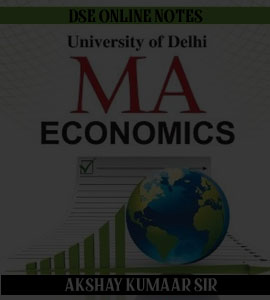Mathematical Economics Coaching in Delhi NCR
Looking for a specialized approach to mastering mathematical economics? Our Mathematical Economics Coaching Classes in Delhi NCR offer expert instruction tailored to build strong foundational knowledge and advanced skills in this vital field. With a focus on key concepts like optimization, economic modeling, and quantitative analysis, our coaching is designed to prepare students for academic and professional success.
Led by the Best Mathematical Economics Coaching Classes in Delhi, our courses ensure thorough coverage of core topics, including calculus, linear algebra, and statistical applications within economics. Our Mathematics for Economics tutor in Delhi provides one-on-one and group support, making challenging topics accessible and relatable.
Enroll today to excel in mathematical economics with the support of the top coaching in Delhi NCR!
Course Learning Outcomes: Mathematical Methods for Economics I
The course refines and builds upon the mathematical skills learned in school, serving as a precursor to Mathematical Methods for Economics-I. Together, these courses provide essential mathematical foundations for advanced studies in economics, statistics, computer science, finance, and data analytics. The analytical tools introduced are widely applied in business decision-making and are crucial for those pursuing analyst roles in the corporate sector. Additionally, the course enhances the student’s ability to think logically, improving their capacity to construct or challenge arguments effectively.
1. Preliminaries:
Logic and proof techniques; sets and set operations; relations; functions and their properties; number systems
2. Functions of one real variable:
The course covers essential mathematical concepts such as graphs and fundamental types of functions including quadratic, polynomial, power, exponential, and logarithmic. It delves into sequences and series, focusing on convergence, algebraic properties, and their applications. Students will also explore continuous functions, learning about their characteristics, operations, and practical applications. Differentiable functions and their properties are introduced, along with second and higher-order derivatives, emphasizing their properties and real-world applications. These tools are integral to advanced economic analysis and decision-making.
NOTE: The above modules give a rough idea about the topics covered in our Introductory Econometrics course. Students will be given modules as per their respective University’s outline after prior discussion.









